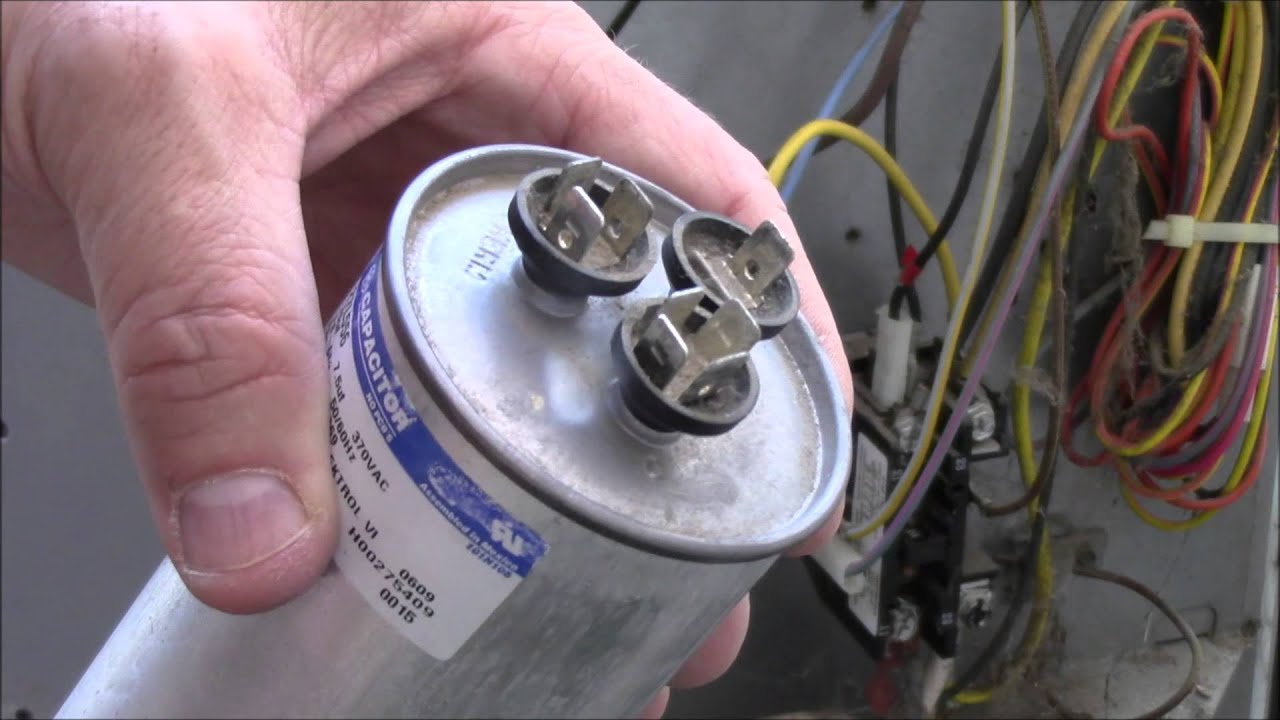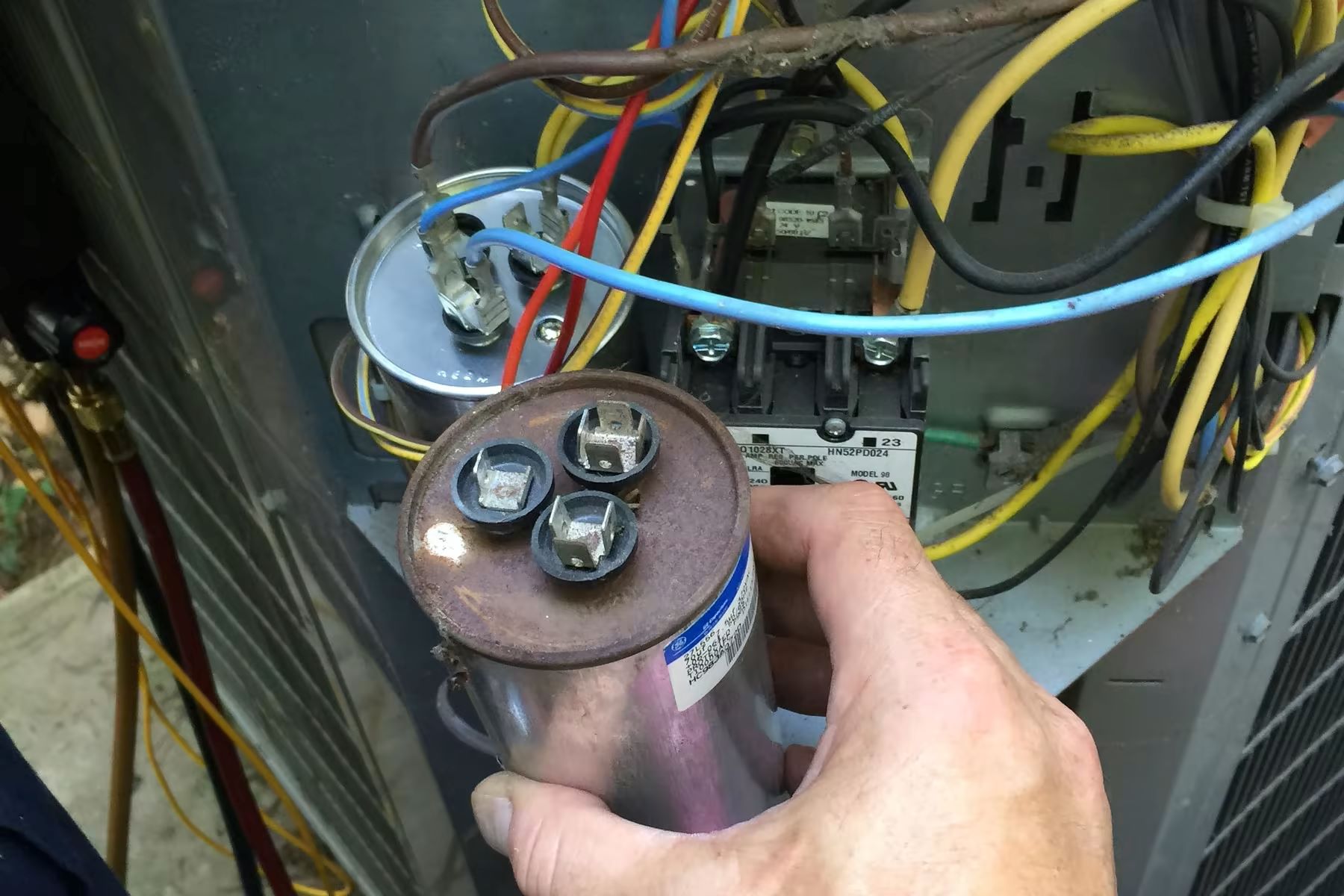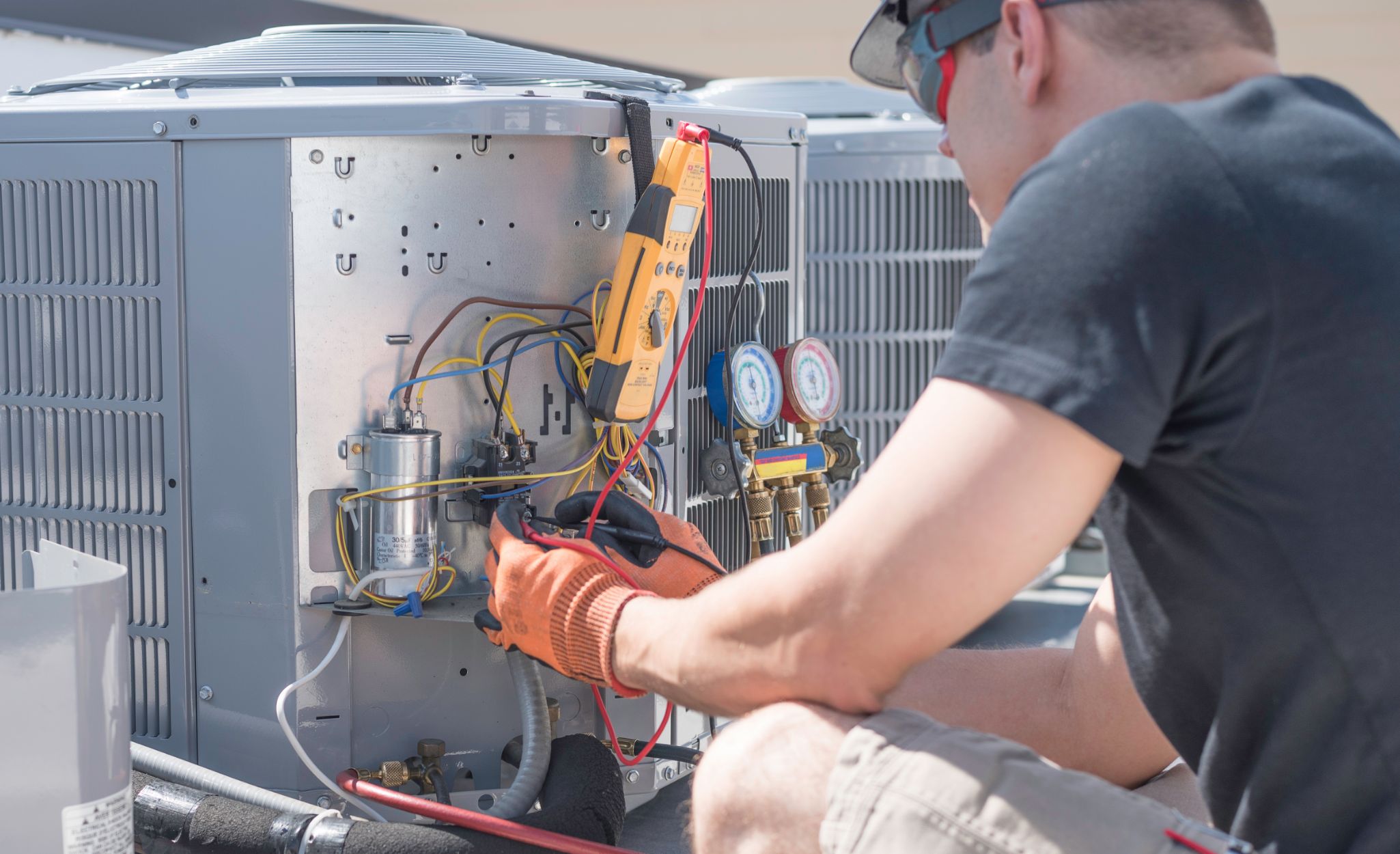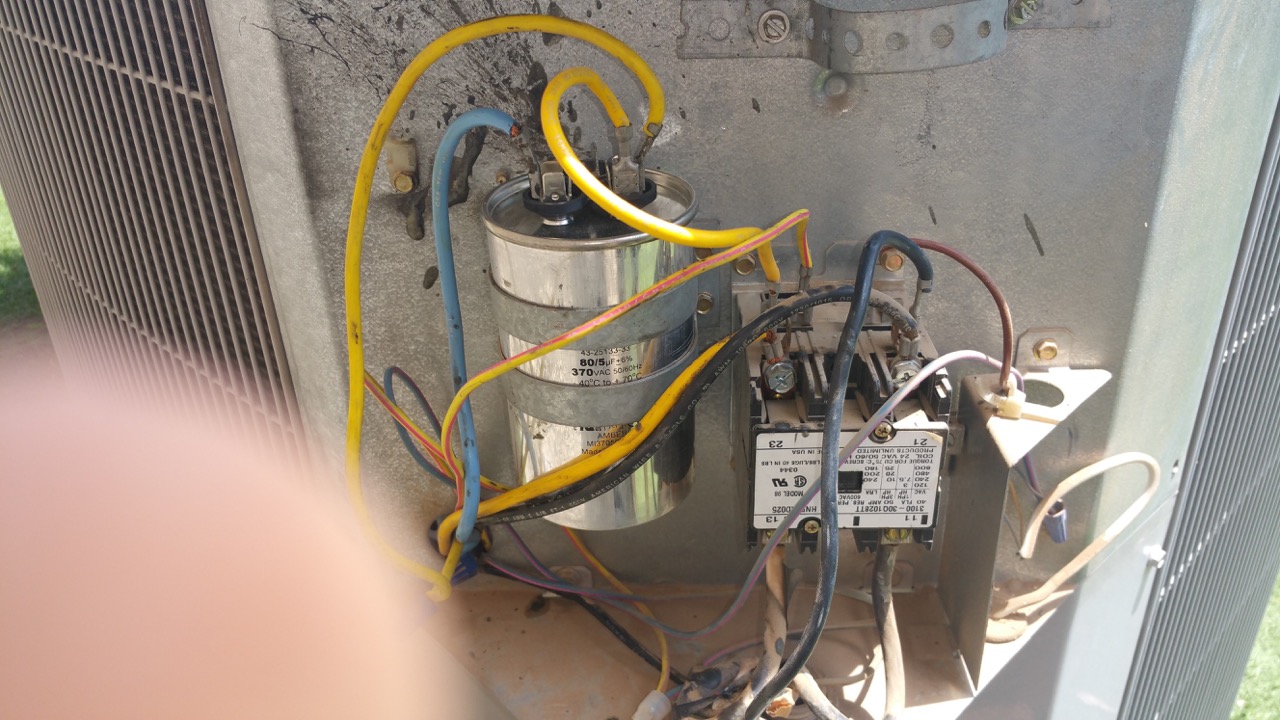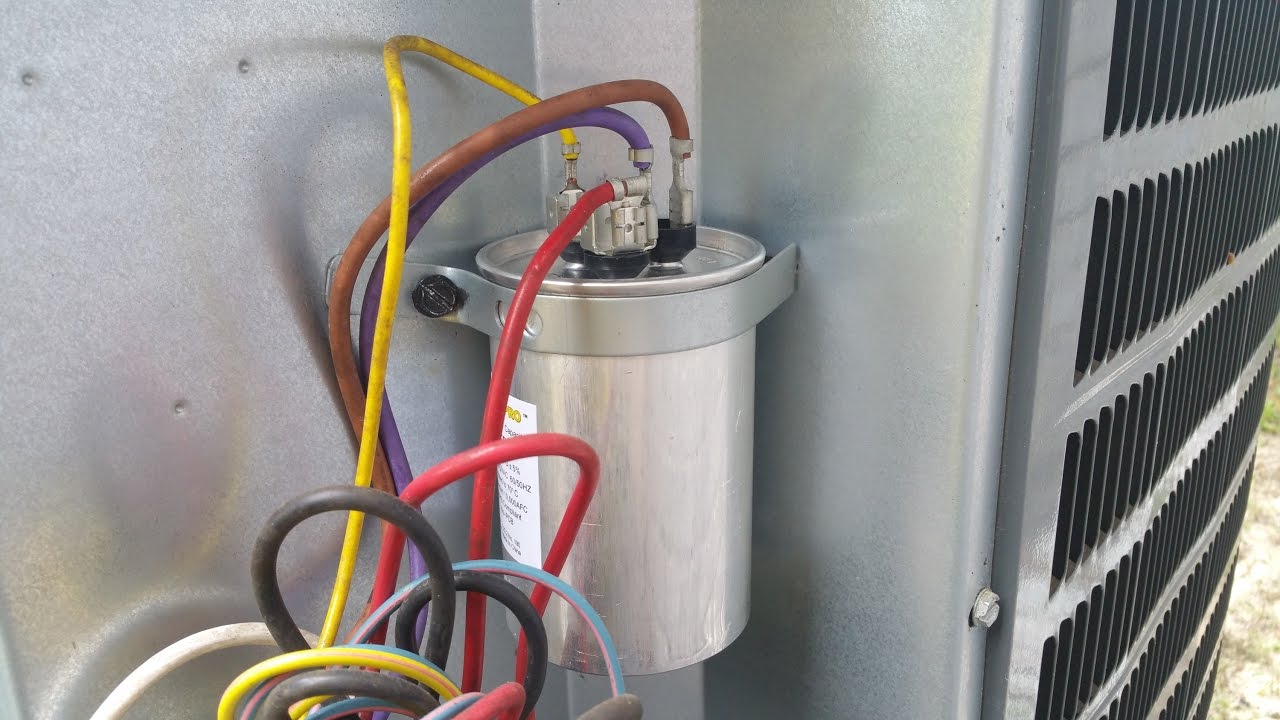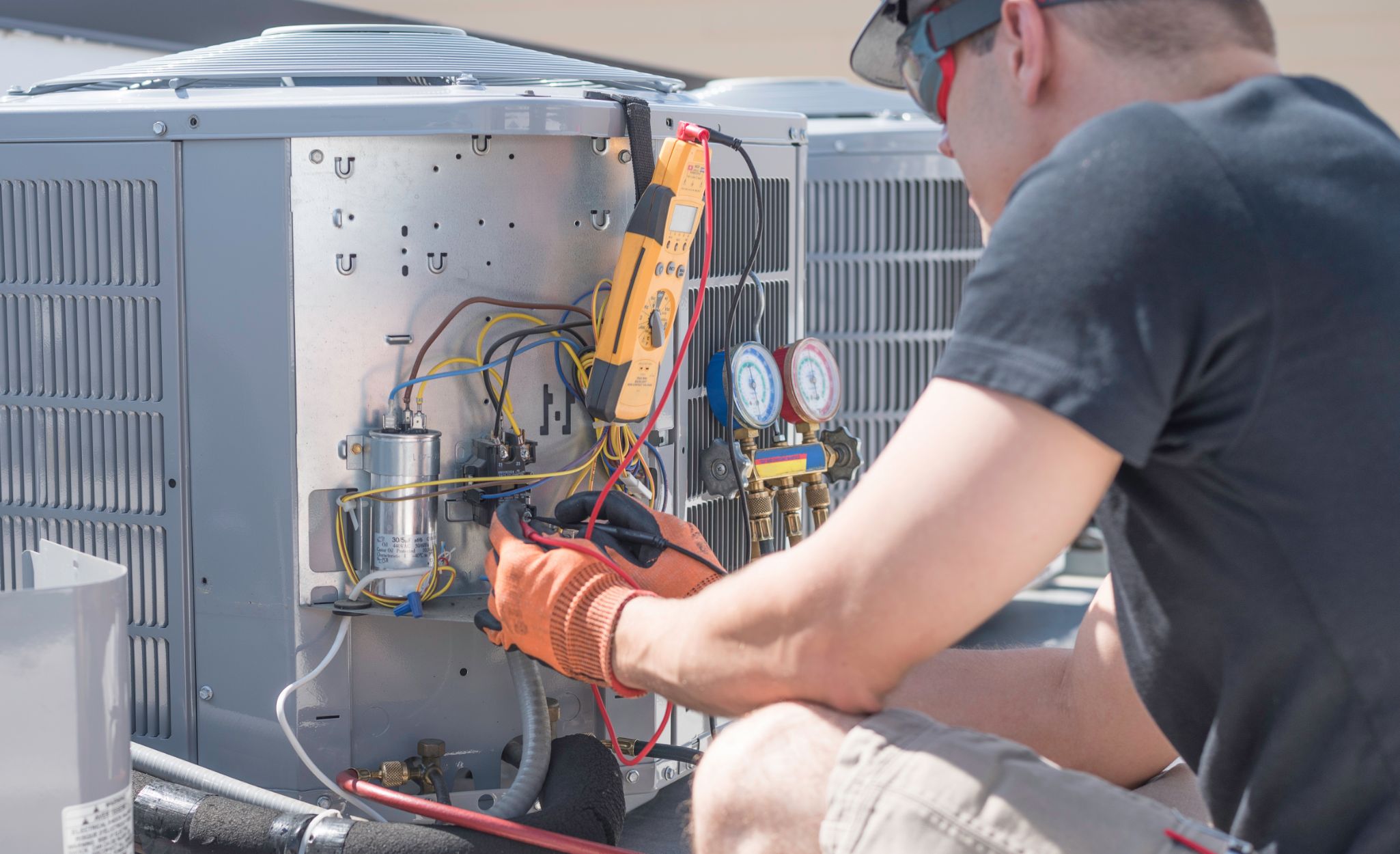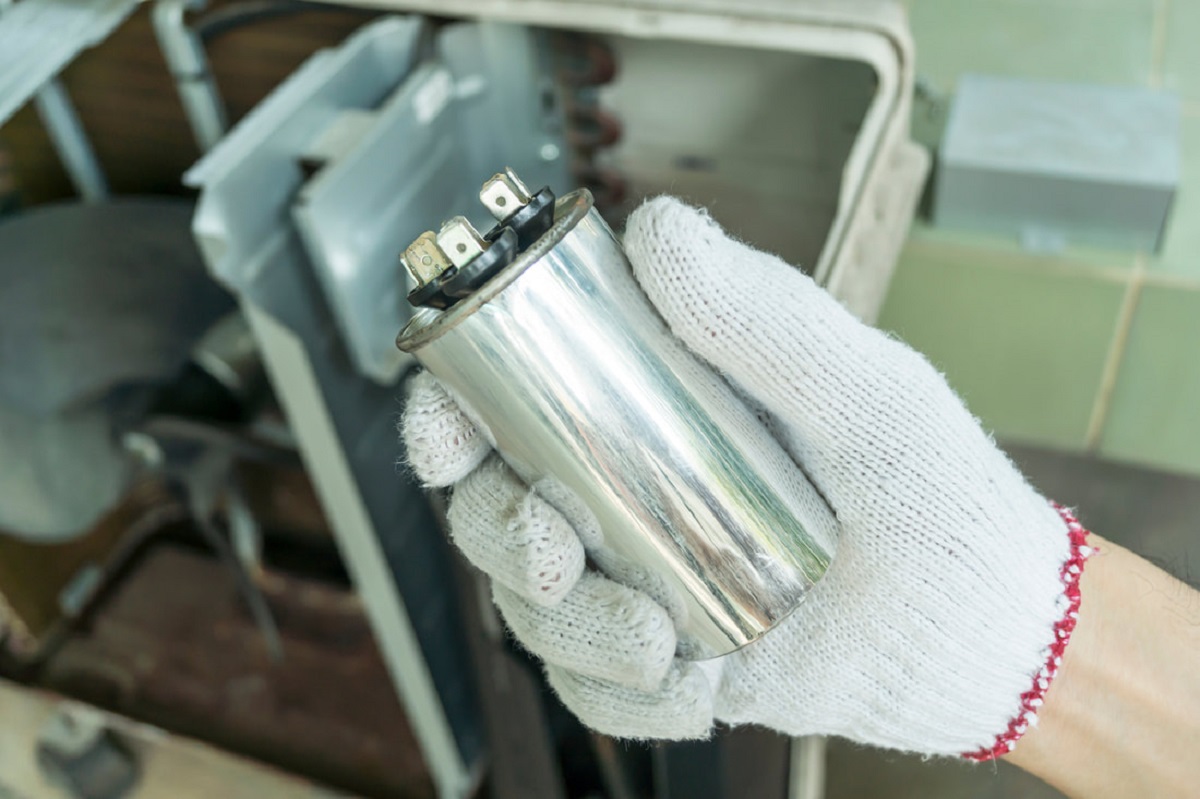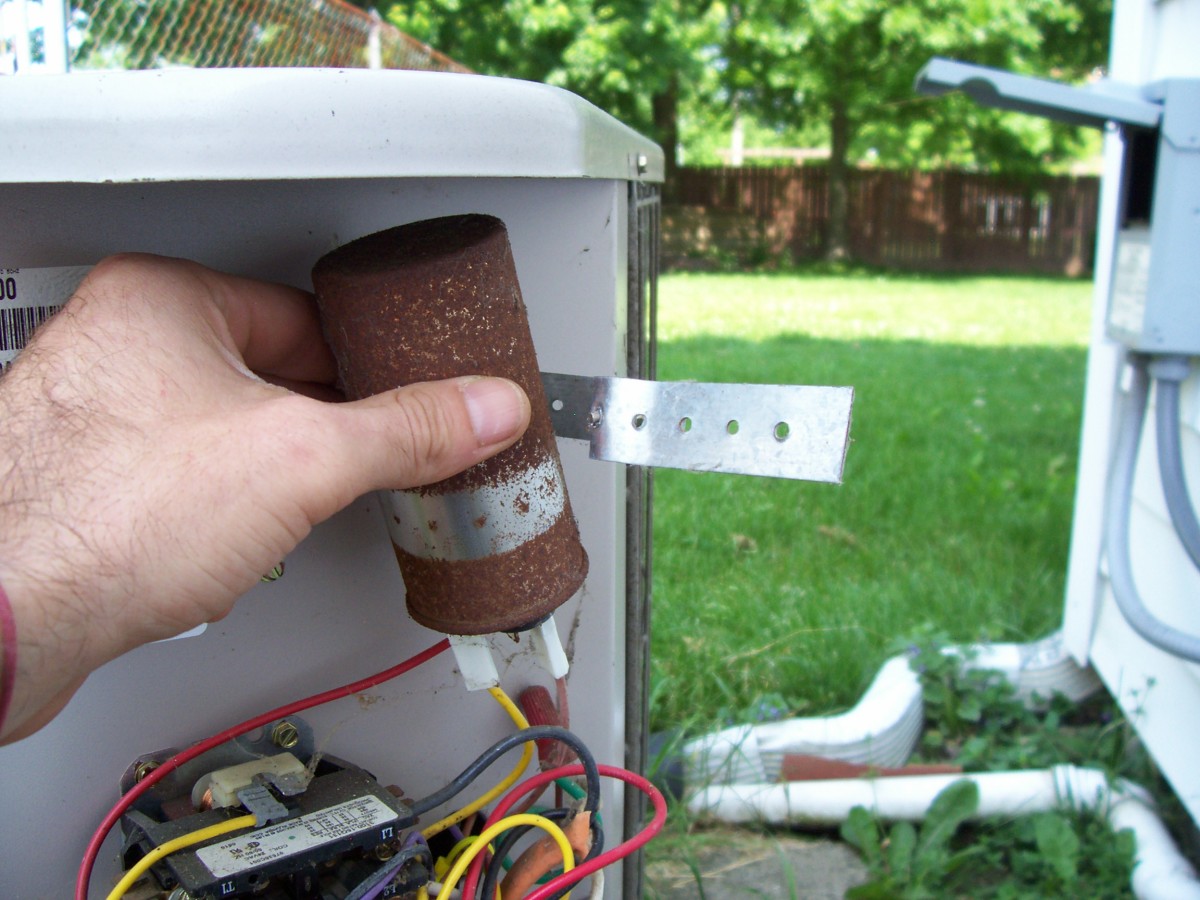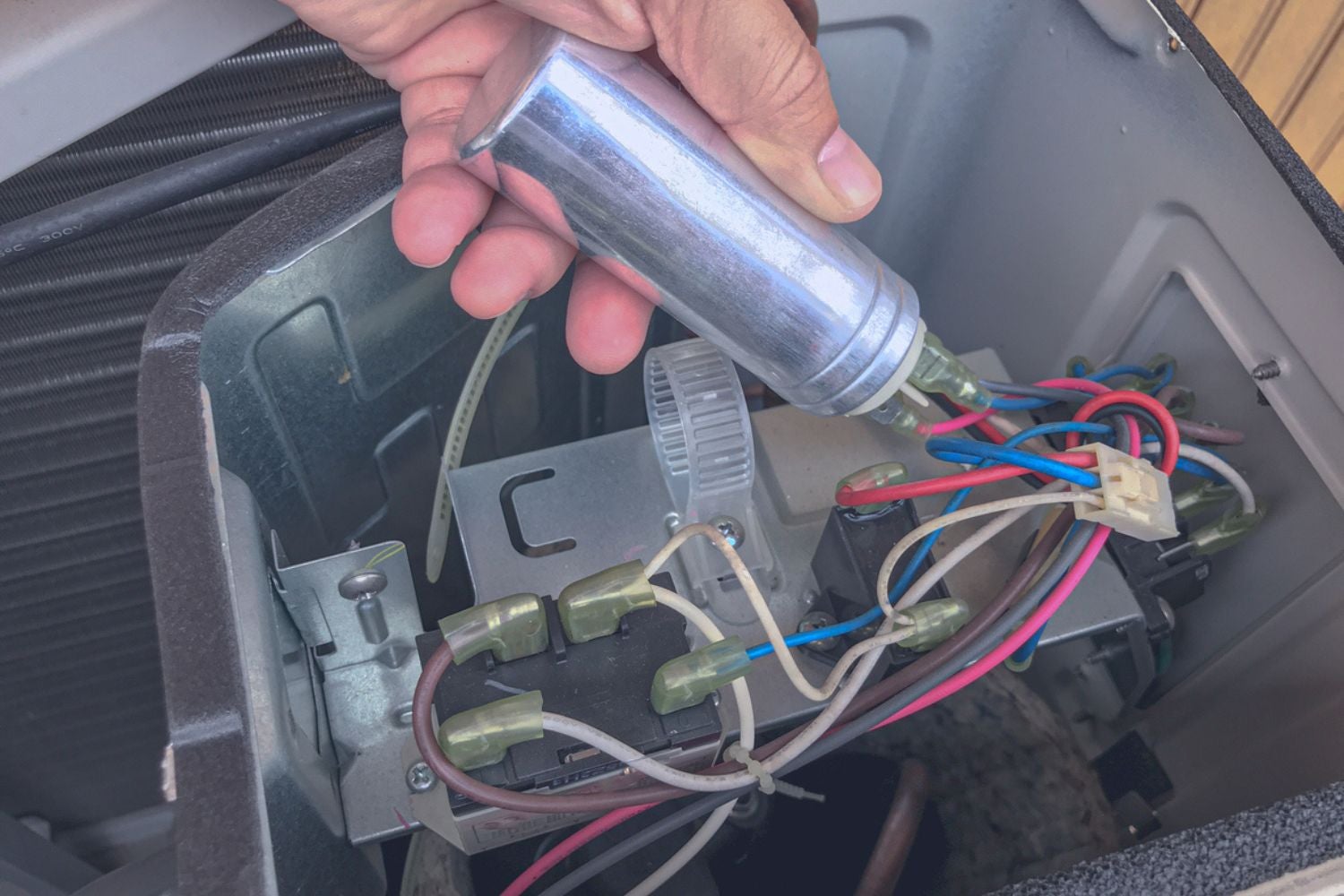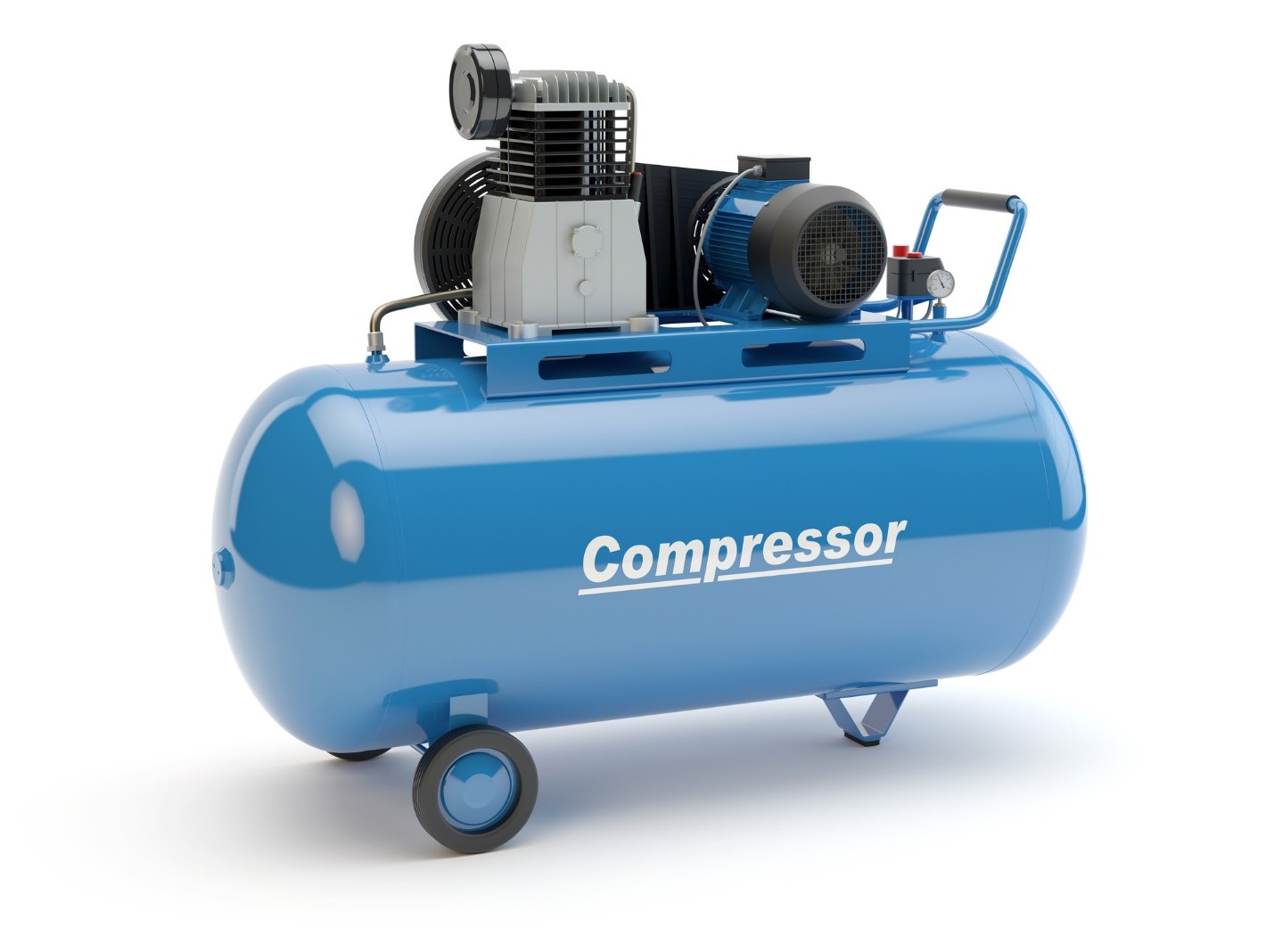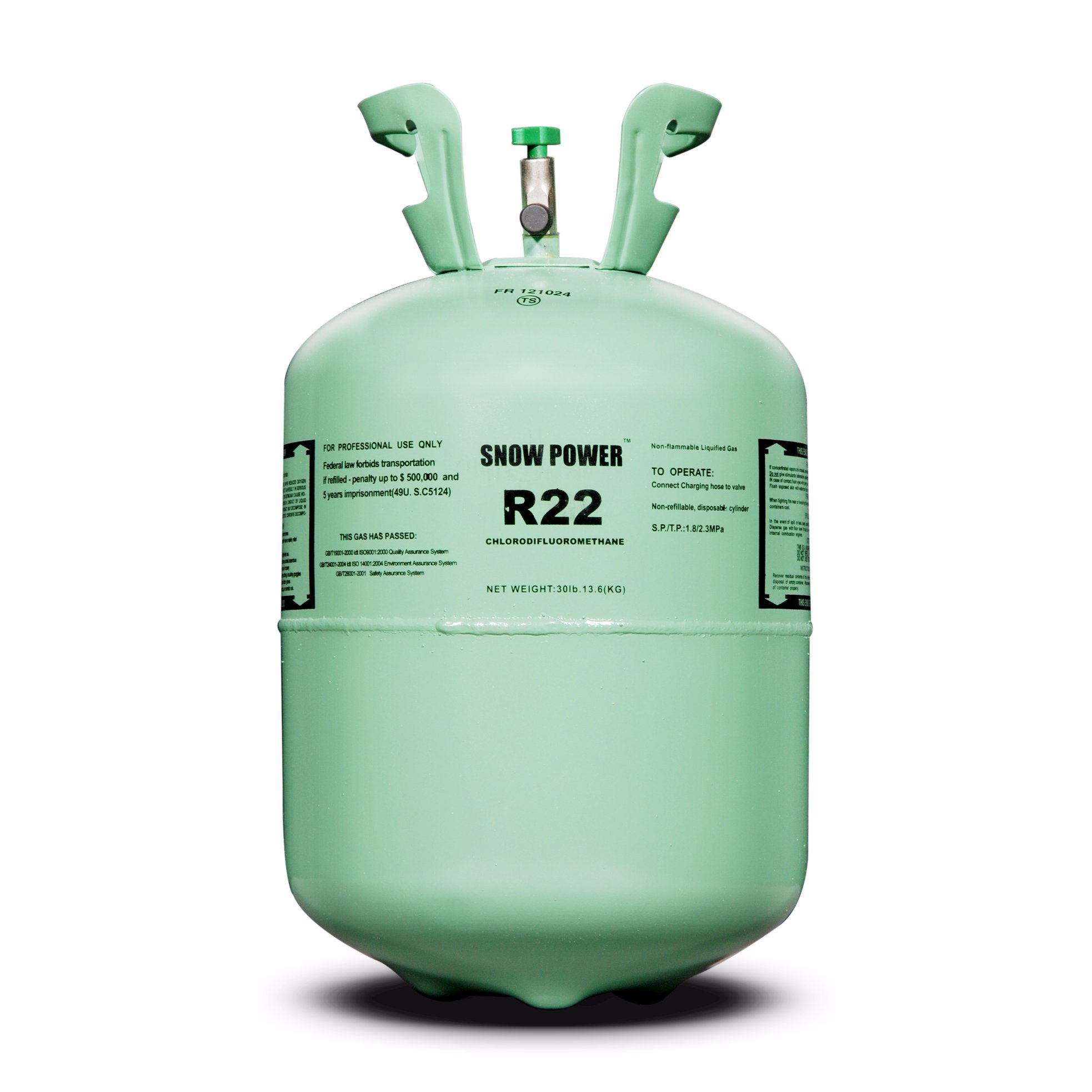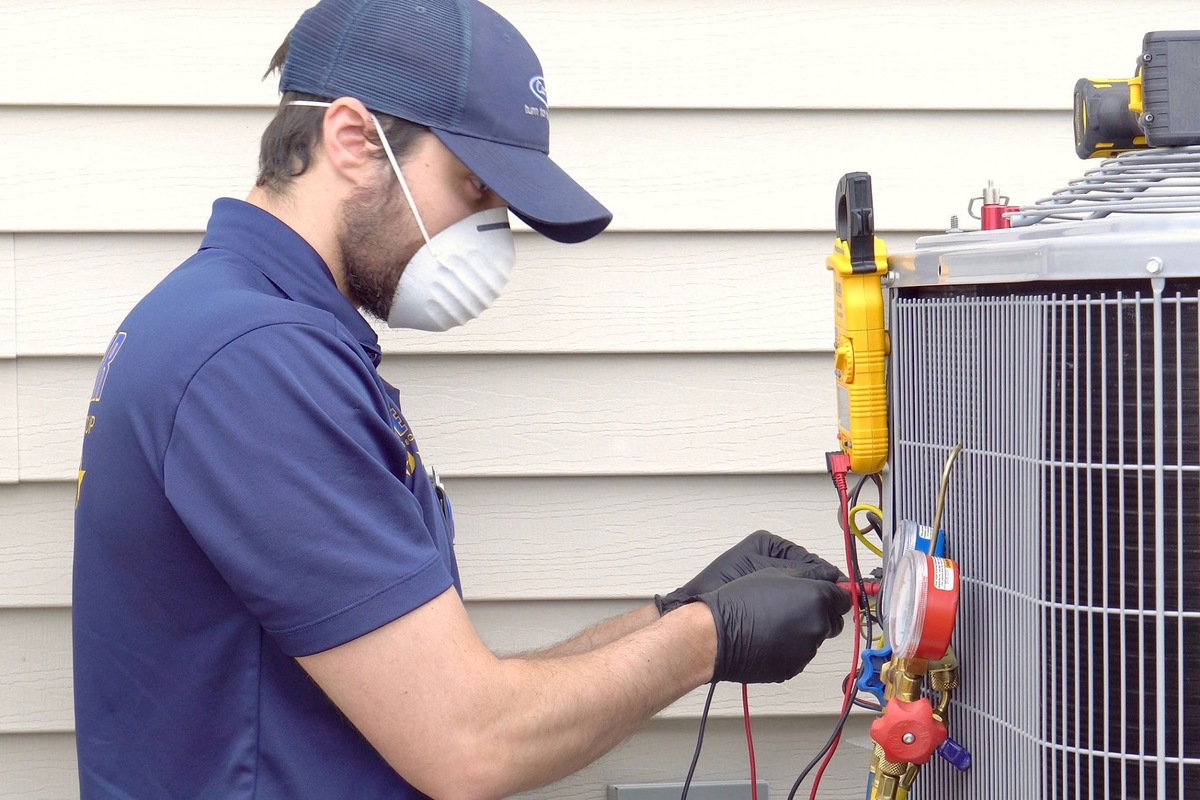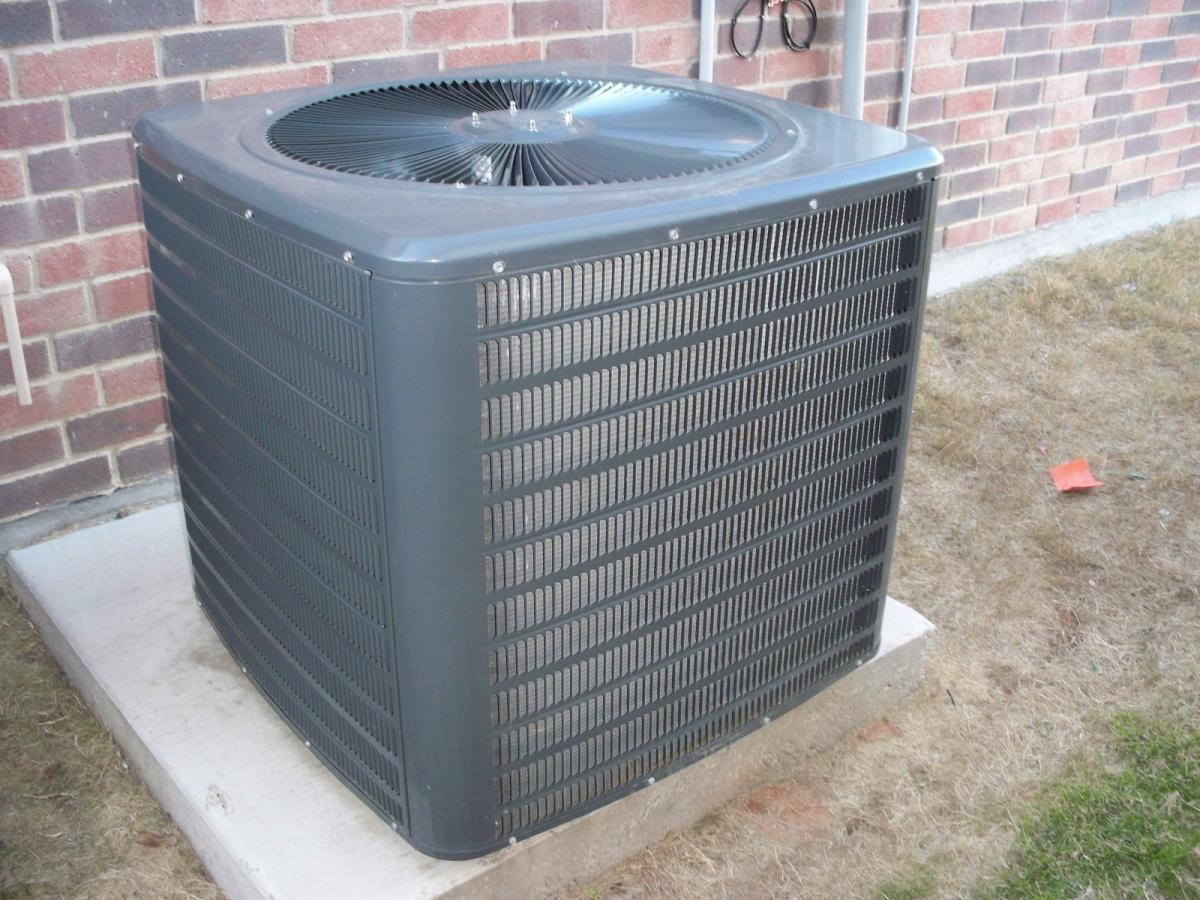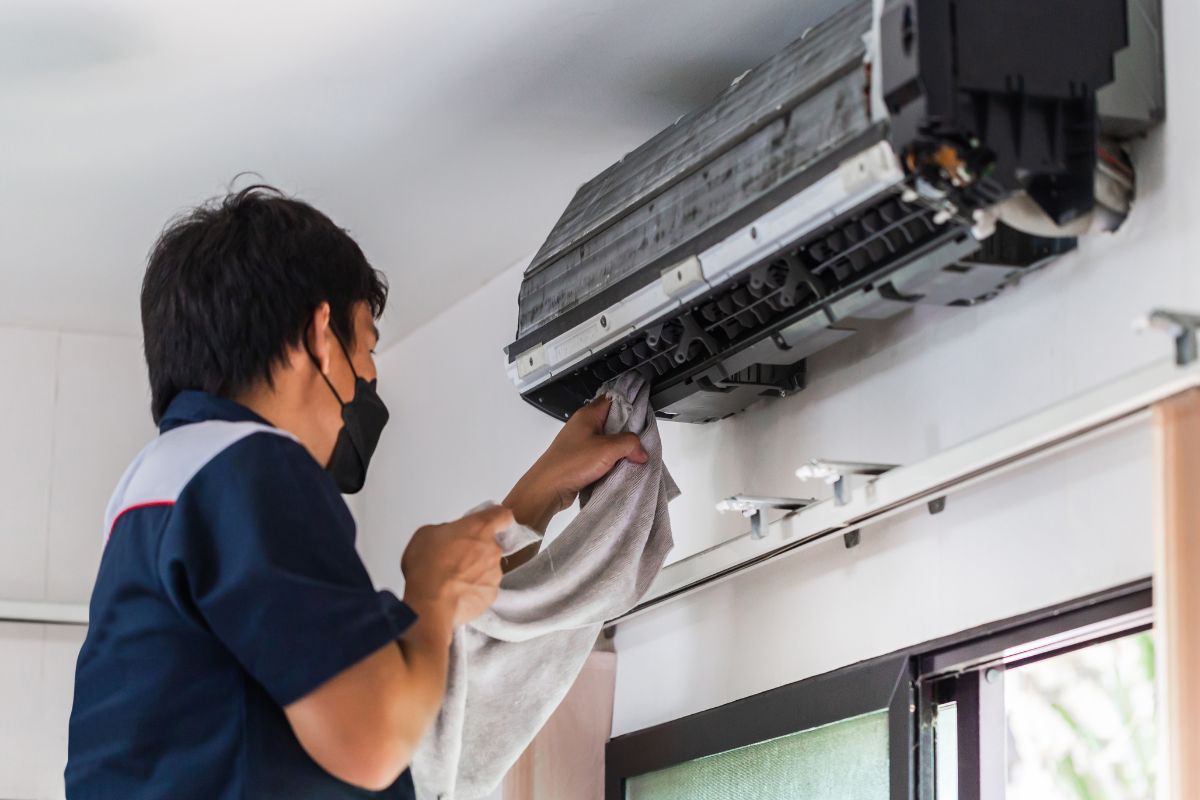Home>Home Maintenance>How Much Is A Capacitor For An Air Conditioning Unit
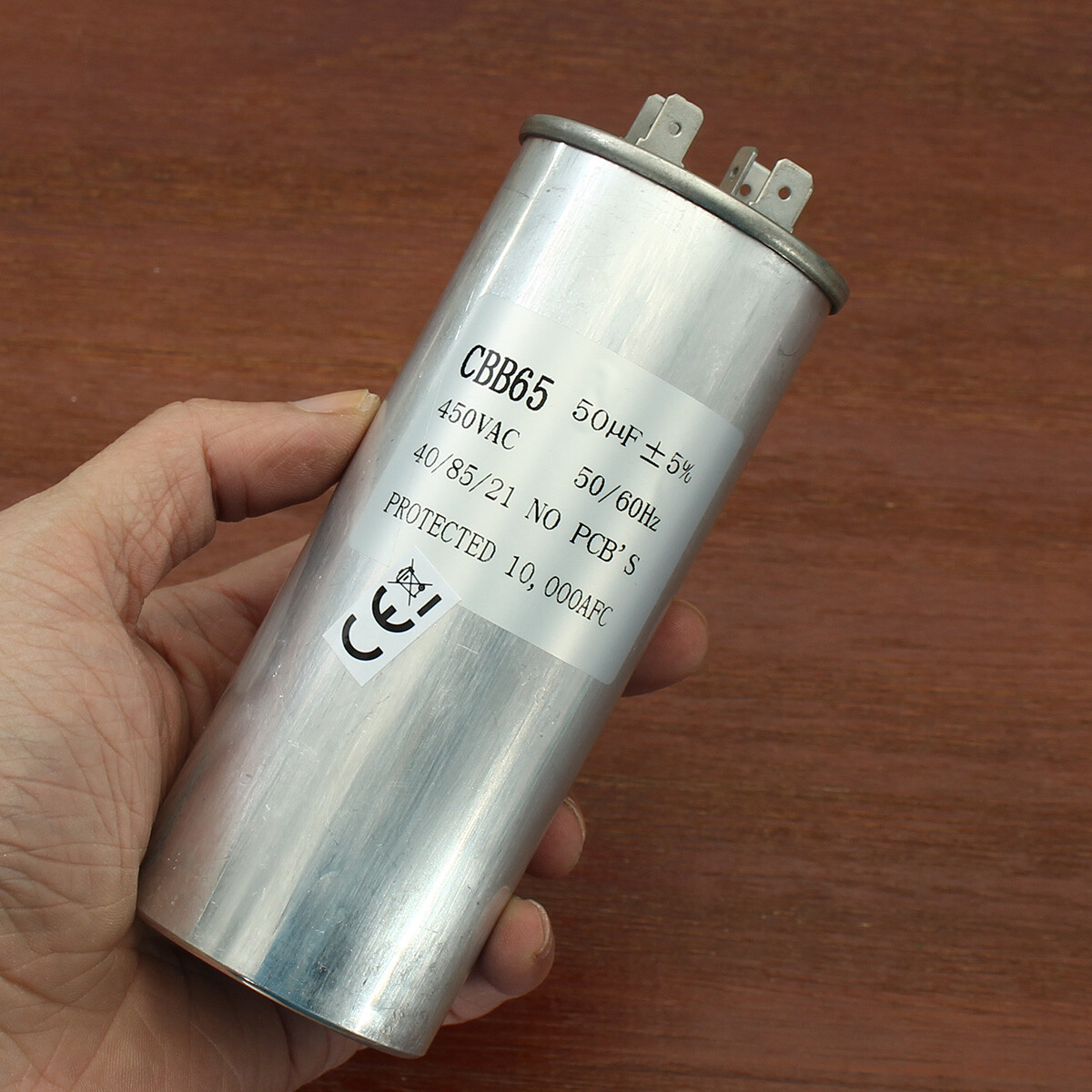

Home Maintenance
How Much Is A Capacitor For An Air Conditioning Unit
Modified: March 6, 2024
Looking for a new capacitor for your air conditioning unit? Find out how much it will cost for a replacement and keep your HVAC system running smoothly.
(Many of the links in this article redirect to a specific reviewed product. Your purchase of these products through affiliate links helps to generate commission for Storables.com, at no extra cost. Learn more)
Introduction
Welcome to our comprehensive guide on how much a capacitor for an air conditioning unit costs. If you’re a homeowner or a DIY enthusiast, understanding the functionality and pricing of capacitors is essential for maintaining and repairing your air conditioner. Capacitors play a crucial role in the smooth operation of your AC system, allowing it to start up and run efficiently. However, like any component, capacitors can wear out over time and need to be replaced. In this article, we’ll delve into the world of capacitors for air conditioning units and provide you with valuable insights into their types, pricing, and factors to consider when purchasing one.
Key Takeaways:
- Capacitors are essential for starting and running air conditioning units. Start capacitors provide the initial power jolt, while run capacitors ensure continuous energy supply for smooth operation.
- When buying a replacement capacitor, consider factors like type, capacitance rating, voltage rating, brand, and compatibility. Prioritize quality over cost to ensure long-term efficiency and savings.
Understanding Capacitors for Air Conditioning Units
Before we discuss the cost of capacitors for air conditioning units, let’s take a moment to understand what capacitors are and their role in the functioning of an air conditioner. A capacitor is an electrical component that stores and releases energy to help start the motor in an air conditioning unit. It provides the initial jolt of power necessary to get the compressor and fan motor running smoothly.
Capacitors are of two types: start capacitors and run capacitors. Start capacitors provide a boost of energy to help start the motor, while run capacitors provide a continuous supply of energy to keep the motor running smoothly. Both types of capacitors are crucial for the proper functioning of an air conditioning unit.
Capacitors work by storing an electrical charge between two conductive plates separated by an insulating material known as a dielectric. When voltage is applied to the capacitor, it charges up and stores energy. This stored energy is then released to start the motor. Without a properly functioning capacitor, the air conditioner may struggle to start, make strange noises, or fail to cool effectively.
Capacitors can deteriorate over time due to factors such as prolonged use, high temperatures, and power surges. When a capacitor starts to fail, it may exhibit signs such as bulging or leaking, or the HVAC system may have difficulty starting. In such cases, it is crucial to replace the capacitor to avoid further damage to the air conditioning unit.
Now that we have a basic understanding of capacitors and their role in air conditioning units, let’s explore the different types of capacitors you may encounter when seeking a replacement.
Types of Capacitors for Air Conditioning Units
When it comes to capacitors for air conditioning units, there are primarily two types that you need to know about: start capacitors and run capacitors. Let’s take a closer look at each type:
- Start Capacitors: Start capacitors, also known as motor-start capacitors, are designed to provide an extra boost of power to help start the motor of the air conditioning unit. They deliver a surge of electrical energy to kickstart the compressor and fan motor. Start capacitors are typically larger in size and have a higher capacitance rating compared to run capacitors. They are only meant to be active during the startup process and are not engaged during the normal operation of the AC unit.
- Run Capacitors: Run capacitors, as the name suggests, provide a continuous supply of energy to keep the motor running smoothly. They help maintain a stable voltage and ensure optimal performance of the air conditioner. Run capacitors are smaller in size than start capacitors and have a lower capacitance rating. They are constantly in use while the air conditioning unit is operating.
Both start capacitors and run capacitors serve critical functions in the operation of an air conditioning unit. While start capacitors provide the initial jolt of energy to start the motor, run capacitors ensure that the motor runs smoothly and efficiently. It’s important to identify which type of capacitor you need to replace, as the specifications and ratings may differ between start and run capacitors.
Now that you understand the different types of capacitors used in air conditioning units, let’s move on to exploring the factors that can affect the pricing of capacitors.
Factors Affecting Capacitor Pricing
The cost of a capacitor for an air conditioning unit can vary depending on several factors. Understanding these factors can help you make an informed decision when purchasing a replacement capacitor. Here are some of the key factors that can affect capacitor pricing:
- Type of Capacitor: The type of capacitor you need for your air conditioning unit can impact its price. Start capacitors, with their higher capacitance rating and larger size, are generally more expensive than run capacitors. It’s important to determine the specific type of capacitor required for your unit before shopping around for pricing.
- Capacitance Rating: Capacitors have different capacitance ratings, which indicate their ability to store electrical energy. Capacitors with higher capacitance ratings tend to cost more than those with lower ratings. The required capacitance for your particular air conditioning unit will depend on the manufacturer’s specifications, so it’s essential to check the requirements before making a purchase.
- Voltage Rating: The voltage rating of a capacitor indicates the maximum voltage it can handle. Higher voltage-rated capacitors are generally more expensive than lower voltage-rated ones. It’s crucial to match the voltage rating of the replacement capacitor with the specifications of your air conditioning unit to ensure compatibility.
- Brand: The brand of the capacitor can also influence its pricing. Well-known and reputable brands may charge a premium for their products, reflecting their quality and reliability. However, it’s important to note that not all expensive capacitors are necessarily superior, so it’s advisable to consider factors beyond just brand reputation.
- Market Conditions: Market conditions, such as supply and demand dynamics, can also impact capacitor pricing. Fluctuations in the availability of capacitors and changes in manufacturing costs can influence the overall market price. It’s a good idea to keep an eye on market trends and compare prices from different suppliers to ensure you’re getting the best value.
It’s worth noting that while price is an important consideration, it shouldn’t be the sole determining factor in choosing a replacement capacitor. Quality, compatibility, and reliability are equally crucial factors to consider. Now that we’ve explored the factors that affect capacitor pricing, let’s delve into the average cost range for capacitors used in air conditioning units.
When purchasing a capacitor for an air conditioning unit, it’s important to consider the size and type needed for your specific unit. Capacitors can range in price from $10 to $100, so it’s best to consult with a professional to ensure you get the right one.
Average Cost of Capacitors for Air Conditioning Units
The cost of a capacitor for an air conditioning unit can vary depending on the factors mentioned earlier. It’s important to note that capacitor prices can range anywhere from around $10 to $100 or more, depending on the type, capacitance rating, voltage rating, brand, and market conditions. Here’s a breakdown of the average cost range for capacitors:
- Start Capacitors: On average, start capacitors can range in price from $10 to $50, depending on the specifications and brand. Keep in mind that larger start capacitors with higher capacitance ratings may be on the higher end of the price range.
- Run Capacitors: Run capacitors tend to be slightly more affordable than start capacitors. On average, run capacitors can cost between $10 and $30, depending on the specifications and brand. Smaller run capacitors with lower capacitance ratings generally fall on the lower end of the price range.
It’s important to remember that these are average price ranges and can vary depending on various factors. Additionally, additional fees for installation or labor may apply if you’re not comfortable replacing the capacitor yourself.
When purchasing a capacitor, it’s essential to prioritize quality and reliability over cost alone. Opting for a lower-priced capacitor may save you money upfront, but it may not last as long or perform as effectively as a higher-quality capacitor. Investing in a reputable brand and ensuring compatibility with your air conditioning unit can help prevent future issues and save you money in the long run.
Now that we have a good understanding of capacitor pricing, let’s move on to discussing the factors you should consider before purchasing a replacement capacitor.
Read more: How To Test An Air Conditioning Capacitor
Factors to Consider Before Purchasing a Capacitor
Before purchasing a replacement capacitor for your air conditioning unit, there are several factors you should consider to ensure you make the right choice. Taking these factors into account will help you select a capacitor that is compatible with your unit and meets your specific requirements. Here are some key factors to consider:
- Type of Capacitor: Determine whether you need a start capacitor or a run capacitor. Understanding the specific type required for your air conditioning unit is essential, as the specifications and ratings may differ between the two.
- Capacitance Rating: Check the manufacturer’s specifications or consult a professional to determine the required capacitance rating for your unit. Selecting a capacitor with the appropriate capacitance rating ensures optimal performance and compatibility with your air conditioner.
- Voltage Rating: Match the voltage rating of the replacement capacitor with the specifications of your air conditioning unit. Using a capacitor with a lower voltage rating may result in damage, while using one with a higher voltage rating may be unnecessary and costlier.
- Quality and Reliability: Choose a capacitor from a reputable brand known for producing high-quality components. Reading customer reviews and checking for certifications can help you assess the reliability and durability of the capacitor.
- Compatibility: Verify that the replacement capacitor is compatible with your specific air conditioning unit. Consider factors such as size, mounting method, and connection terminals to ensure a proper fit.
- Budget: While it’s important to consider cost, focus on value for money rather than solely looking for the cheapest option. Investing in a quality capacitor that meets the requirements of your air conditioning unit will save you from potential issues and costly repairs in the future.
Taking these factors into account and consulting with a professional, if needed, will help you make an informed decision when purchasing a replacement capacitor for your air conditioning unit. Additionally, following some tips can further assist you in selecting the right capacitor.
Tips for Buying Capacitors for Air Conditioning Units
When buying a capacitor for your air conditioning unit, it’s important to make an informed decision to ensure you select the right component for optimal performance and compatibility. Here are some helpful tips to consider:
- Consult the Manufacturer: Check the manufacturer’s specifications or reach out to their customer support for guidance on the type, capacitance rating, and voltage rating of the capacitor recommended for your specific air conditioning unit.
- Choose Reputable Brands: Opt for capacitors from well-known, reliable brands. Trusted brands often have a proven track record of producing high-quality components that are built to last.
- Read Customer Reviews: Take the time to read customer reviews and feedback on the capacitor you are considering. This can provide valuable insights into the performance, reliability, and durability of the product.
- Compare Prices: Shop around and compare prices from different suppliers and retailers. However, be cautious of unusually low-priced capacitors, as they may compromise on quality and reliability.
- Consider Longevity: Look for capacitors with a longer lifespan or extended warranty, as this indicates the manufacturer’s confidence in the product’s durability. Investing in a capacitor with a longer lifespan can help you avoid premature failure and additional replacement costs.
- Verify Compatibility: Double-check the compatibility of the capacitor with your specific air conditioning unit. Ensure that it matches the size, mounting method, and connection terminals required for a proper fit.
- Work with Professionals: If you are unsure about the right capacitor or lack the necessary skills for installation, it is recommended to seek assistance from HVAC professionals. They can guide you through the process and ensure that the replacement is done correctly.
By following these tips and considering the factors discussed earlier, you can make a well-informed decision when buying a capacitor for your air conditioning unit. Taking the time to research and select the right capacitor will help maintain the efficiency and longevity of your HVAC system.
As we conclude this guide, remember that capacitors are crucial components of an air conditioning unit, and their proper functioning is essential for optimal performance. Regular maintenance and timely replacements, when needed, will ensure the smooth operation of your AC system.
Conclusion
Understanding the cost and functionality of capacitors for air conditioning units is crucial for homeowners and DIY enthusiasts looking to maintain and repair their HVAC systems. Capacitors play a vital role in starting and running the motors in air conditioning units, ensuring efficient operation and cooling. While the cost of capacitors can vary based on factors like type, capacitance rating, voltage rating, and brand, it’s important to prioritize quality and compatibility when making a purchase.
Start capacitors provide the initial jolt of power to start the motor, while run capacitors ensure a continuous supply of energy for smooth operation. When choosing a replacement capacitor, consider factors such as capacitance rating, voltage rating, brand reputation, compatibility, and budget. Trustworthy brands and higher-quality components may come at a higher price, but they offer better reliability and longevity.
Remember to consult the manufacturer’s specifications and customer reviews to guide your decision-making process. Additionally, comparing prices from different suppliers and retailers can help you find the best value for your investment. If you’re unsure about the selection or installation process, it’s advisable to seek assistance from HVAC professionals.
In conclusion, understanding capacitors and their pricing is essential for maintaining and repairing air conditioning units. By considering the factors mentioned and following the tips provided, you can confidently purchase a replacement capacitor that will ensure the efficient and reliable operation of your air conditioning system for years to come.
Frequently Asked Questions about How Much Is A Capacitor For An Air Conditioning Unit
Was this page helpful?
At Storables.com, we guarantee accurate and reliable information. Our content, validated by Expert Board Contributors, is crafted following stringent Editorial Policies. We're committed to providing you with well-researched, expert-backed insights for all your informational needs.
